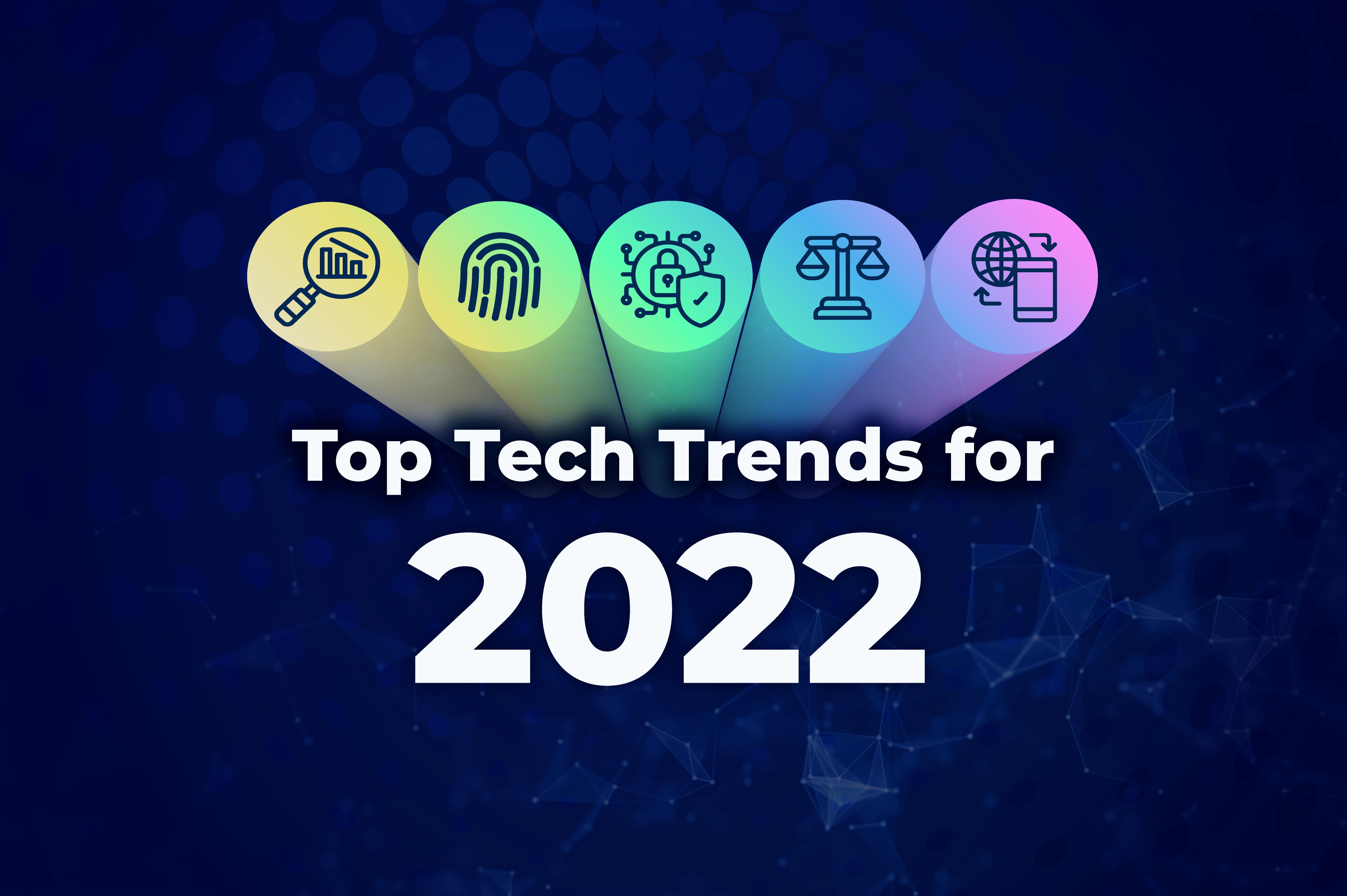
Top tech trends for 2022: expectations of the 2021 best tech company
2021 has been yet another eventful year for the digital sector as a whole. It was characterized by further expansion and innovation despite, but also as a result of, the pandemic-related challenges. At GVG, as digital technology experts, we are excited to see what new developments 2022 will bring to the sector! So with the year still being brand new, here is our take on the trends to look out for over the next few months…
Big Data analytics. Increased digitization of the telecom and financial services, availability of innovative Big Data technologies such as the ones GVG has developed…These factors lead us to expect a surge in governments’ demand for Big Data analytics for governance purposes. A specific application of Big Data analytics which the pandemic highlighted is the leveraging of mobility data. Mobility data are gathered from the millions of mobile phones in use in a given country. They are then processed using a highly secure architecture to ensure their confidentiality and security, in compliance with the data privacy laws of the country concerned. Just like any other kind of Big Data, they provide governments with valuable insights that support decision-making.
Digital Identity. One can justifiably consider Digital ID as one of the cornerstones of inclusion, whether the latter is financial or social. Indeed, more and more financial and government services are now available online. This means that users will need to acquire a digital identity to access these services and thus actively engage in the digital society and economy. We therefore expect to see a significant increase in the need for digital identities. This would foster the creation of a secure, transparent and inclusive digital ecosystem and thus drive growth on the continent through digital technology.
Regulatory harmonization of the digital ecosystem. In a previous interview with Digital Business Africa, our CEO, James Claude, stated that he anticipated a growing need for regulatory harmonization in the digital sector in 2022. According to him, such harmonization is necessary to “achieve economies of scale that promote digital inclusion and reduce inequality in sub-Saharan Africa”. It is therefore essential that governments, associations and private companies work together to create a framework that harmonizes regulation across African countries, with the aim of supporting the continent’s economic integration.
But one cannot talk about regulatory harmonization without also discussing the adoption of technological tools as a way of supporting regulation. Indeed, for this harmonization to be successful in Africa, governments and regulatory authorities require a technological upgrade. This upgrade would take the form of IT solutions enabling Big Data collection and analysis as we explained in the first point of this post.
Interoperability. The pandemic has led to significant growth in the use of innovative electronic payment services such as Mobile Money and mobile payments. Governments themselves have promoted these services, but without necessarily making use of them. There is therefore a need to unify this fragmented ecosystem. One way to achieve this is through the implementation of interoperability solutions like TransFin, the comprehensive payment gateway platform we launched last year.
Over the past two years or so, we have witnessed substantial progress towards the establishment of a digital economy. The trends we identify here suggest that 2022 will follow suit. GVG’s objective for this new year is to keep on supporting this forward movement through sustained innovation and dedication.
Want to read the last blog post of 2021: Is the African ICT sector living up to the expectations of recovery?
Click here!
